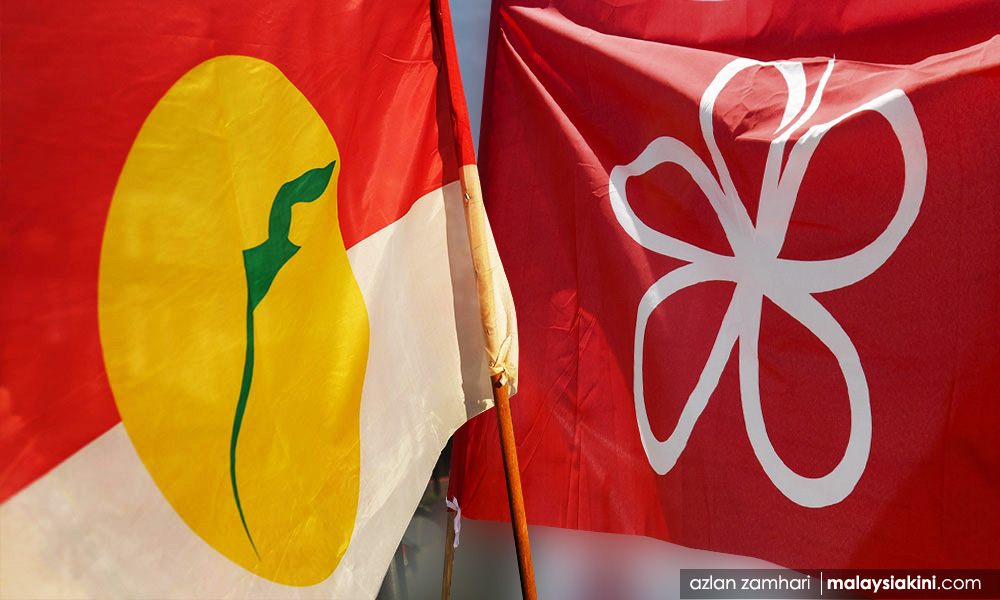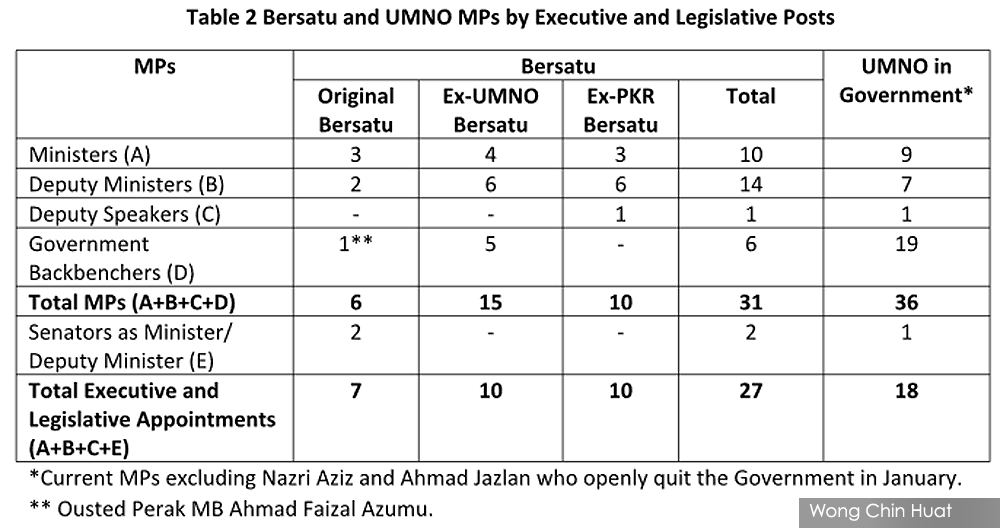Many Malaysian voters crave unity between parties. That craving is as admirable as that of European football fans demanding the 24 Union of European Football Associations (Uefa) Euro teams to stop their rough competition and enter a gentleman’s negotiation to decide how the championship may be peacefully shared.
As Malaysia’s failure in the Covid-19 pandemic and economic management has much to do with the power struggle within the government and between the government and the opposition, many put the blame on Muhyiddin Yassin for failing to unite the parties.
The solution then becomes simple and straightforward: let’s just get a new prime minister. Maybe Foreign Minister Hishammuddin Hussein with Senior Minister Azmin Ali as his buddy can bring peace between Umno and Bersatu.
Maybe long-time Gua Musa MP Tengku Razaleigh Hamzah can unite Umno, Bersatu and Parti Pejuang Tanah Air (Pejuang). Or, maybe opposition leader Anwar Ibrahim can finally get his “strong, formidable and convincing numbers” by bringing Pakatan Harapan and Umno together.
For others, peace is possible not now but only after a new election, which must be called as soon as possible once the country attains herd immunity. How so? The assumption is that voters will return a clear winner and a stable Parliament, and of course, a new and stronger prime minister.
Are these realistic expectations or just wishful thinking? Let’s examine the facts.

Can Umno and Bersatu not fight?
If Umno and Bersatu can be united for the sake of national interests, communal unity or simply a win-win power-sharing deal, then the government will have a slim yet firm majority of 113 out of 220, as we last counted it.
Can a Hishammuddin-Azmin team or Razaleigh perform the miracle of reconciling and uniting Umno and Bersatu?
For the two parties to work together now, they must agree on the future – at least the allocation of constituencies for contestation in the 15th general election (GE15).
Going by the golden rules in Malaysian coalition politics, allies split constituencies on two principles: ethnic division of labour and incumbency.
Since the two Malay nationalist parties are just different hierarchical networks of politicians with identical ideology, they both want to contest in predominantly Malay and Malay-dominated mixed constituencies. So, the first principle is simply non-applicable.
Worse, they cannot even agree on the second principle: incumbency, because Bersatu only won six out of its present 31 seats in 2018, 15 were dowry brought in by Umno defectors and 10 more by PKR defectors. (See table below)

For Umno, the incumbency of Bersatu 15 former Umno seats is with Umno, not Bersatu, while the 10 former PKR seats should be open for negotiation. Already, GPS has made clear that it would not give way to Bersatu and pro-Bersatu MPs in Sarawak in the next election unless they join one of the GPS parties.
To concede the 15 former Umno seats to Umno, Bersatu would be left with only 14 seats to defend in the Peninsula and Sabah, smaller than even PAS’ 18. Bersatu can then kiss goodbye to the prime-ministership after the election and its lawmakers may even hop to Umno or other parties.
Unequal distribution of incumbency advantages
Exactly because Bersatu is ideologically identical to Umno and organisationally weak, the party is nothing but a hierarchical network of parliamentarians and other politicians surviving on incumbency advantages.
In terms of power, resources and visibility, incumbency advantages are enjoyed by government parties over opposition parties, by ministers over government backbenchers and opposition MPs, by sitting parliamentarians over challengers.
That is true in any country with multiparty competition, but Malaysia ruling parties make excessive use of it to weaken the opposition and rivals within the government.
During Harapan's 22 months in power, Bersatu actively induced Umno parliamentarians to cross over but its hands were tied in rewarding the Umno turncoats. The administration (at its height, only 55 ministers and deputy ministers including five senators) was lean and no cabinet reshuffle took place. Though with some exceptions, appointing government backbenchers to head statutory bodies or government-linked companies (GLCs) was largely condemned by the public.
In post-Sheraton manoeuvres, Muhyiddin has used incumbency advantages extensively to pay off parliamentarians for supporting his government. The number of ministers, minister-level envoys and deputy ministers is now 72, including eight senators. All government backbenchers are or were given a lucrative GLC/statutory body job except the Umno court cluster of six, Razaleigh, Nazri Abdul Aziz, Bersatu's former Perak menteri besar Ahmad Faisal Azumu, Ab Latiff Ab Rahman of PAS and the latest former PKR trio.
Muhyiddin gave executive and legislative jobs to 25 out of 31 Bersatu parliamentarians. The only exceptions were Ahmad Faisal and five Umno defectors. All three former PKR ministers stayed in the cabinet while seven defectors were appointed as deputy minister or deputy parliamentary speaker.
In sharp contrast, only 17 amongst Umno's 39 MPs at the time of Sheraton Move were appointed as ministers, deputy ministers or deputy parliamentary speaker. More so, the appointments did not follow party hierarchy. (See Table 2)
For Umno leaders and grassroots, the message was clear: Muhyiddin is continuing former premier Dr Mahathir Mohamad’s game to break up and absorb Umno. Between Umno and Bersatu, only one will survive after GE15.
Consequently, allowing Bersatu with insatiable greed to keep the defectors’ constituencies would be suicidal for Umno, a fear confirmed in the 2020 Sabah state election. Umno allowed Bersatu to keep six out of eight defectors’ constituencies, only to face challenges from Bersatu’s Kadazandusun sidekicks PBS and Star in six of its own constituencies. After the election, Bersatu further grabbed the chief minister’s job despite Umno winning three more seats than Bersatu.

Since Umno and Bersatu are ideologically identical, why don’t they merge and attain Malay unity? This is like asking two long queues to merge into one. If you are already at the beginning of a queue, would you want the two queues to emerge and you get pushed to the back?
Expect Umno-Bersatu’s bad blood to continue under a new prime minister and get worse if Azmin or former Umno man Hamzah Zainudin is made number two.
Why any new government won't last long
For most Umno leaders and grassroots, the party’s best option is to go solo (as BN) against both PN and Harapan in GE15.
Why? Umno beat Bersatu as the first runner-up in 16 seats, PAS in 20 seats, PKR and Amanah in five seats each, and Warisan in three seats, totalling 49 and 15 of these are now in Bersatu.
In turn, Umno emerged as the number two to Bersatu in nine seats, PAS in 17 seats, PKR in 20 seats, Amanah in nine seats and Warisan in six seats, totalling 61.
For Umno, a fresh election can crush Bersatu, increase its seats and possibly make it the largest party to dominate the next coalition government. In other words, whichever formation of government it joins, Umno won’t want it to last.
So, can a government that cannot wait to end its term do a good job in combating the pandemic and saving the economy? - Mkini
WONG CHIN HUAT is an Essex-trained political scientist working on political institutions and group conflicts. Mindful of humans' self-interest motivation while pursuing a better world, he is a principled opportunist.
The views expressed here are those of the author/contributor and do not necessarily represent the views of MMKtT.



No comments:
Post a Comment
Note: Only a member of this blog may post a comment.